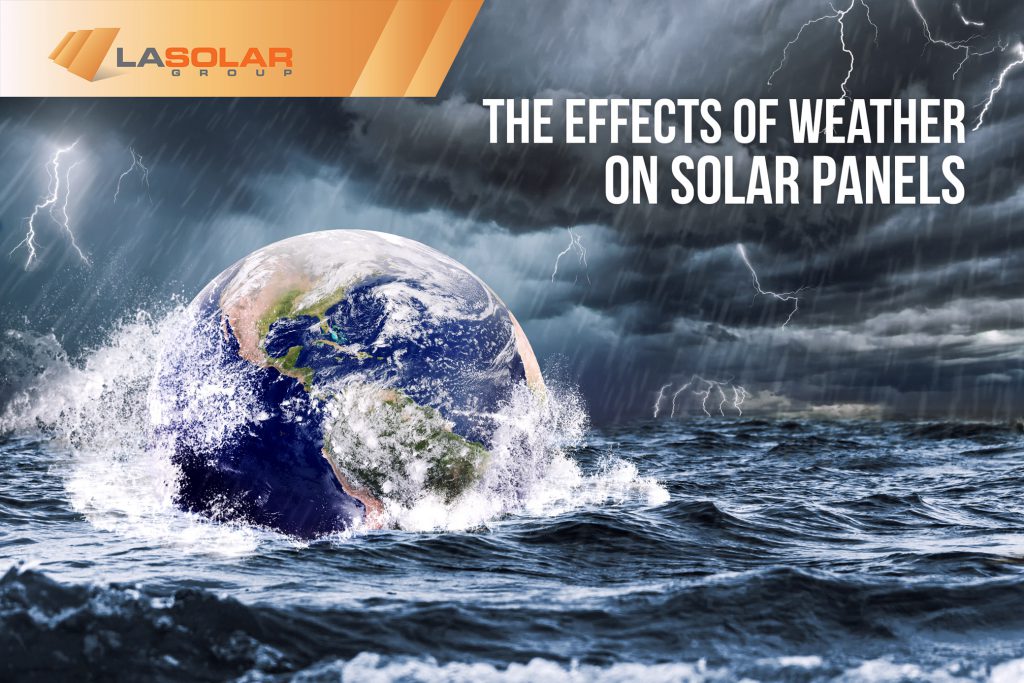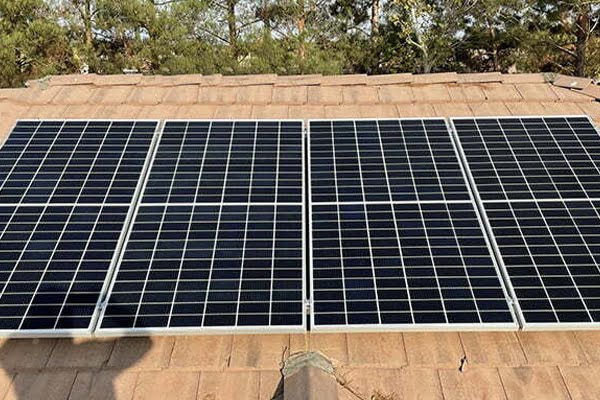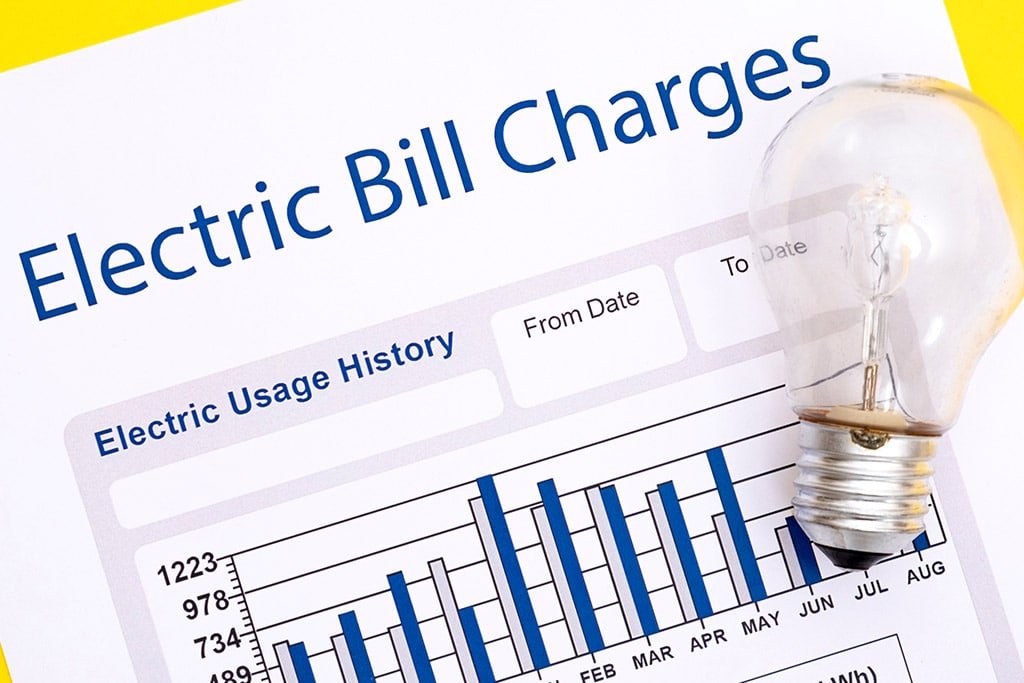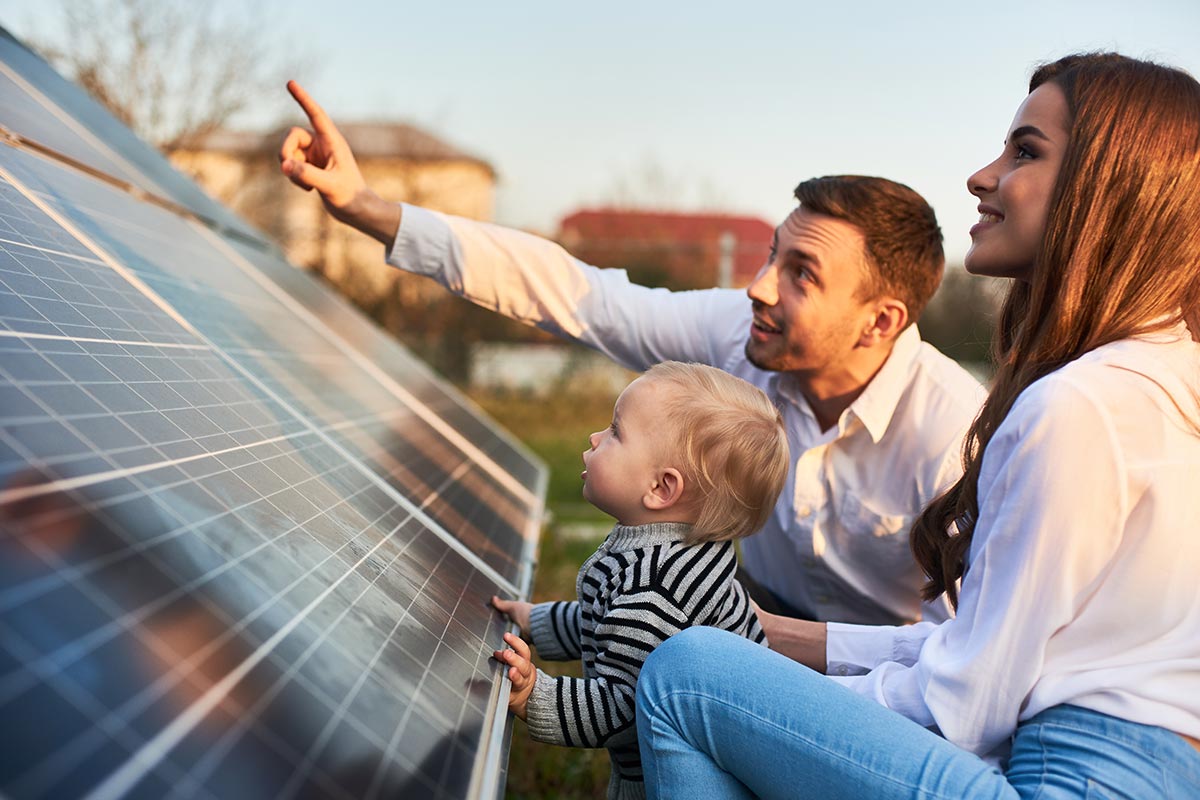Solar panel performance generally depends on several facts, including solar panel system type, location of the solar panel installation, amount of sunlight, the intensity of the sun, and, overall, weather conditions.
Do Solar Panels Produce In Cloudy Weather?
Everything that closes the path of sunlight to your solar panels impacts the system and can reduce the amount of electricity generated. Even so, on cloudy days, solar panels still produce energy. You can also check if your system produces energy with the help of shadow. If there is a shadow from a nearby object outside, then the system is generating some power.
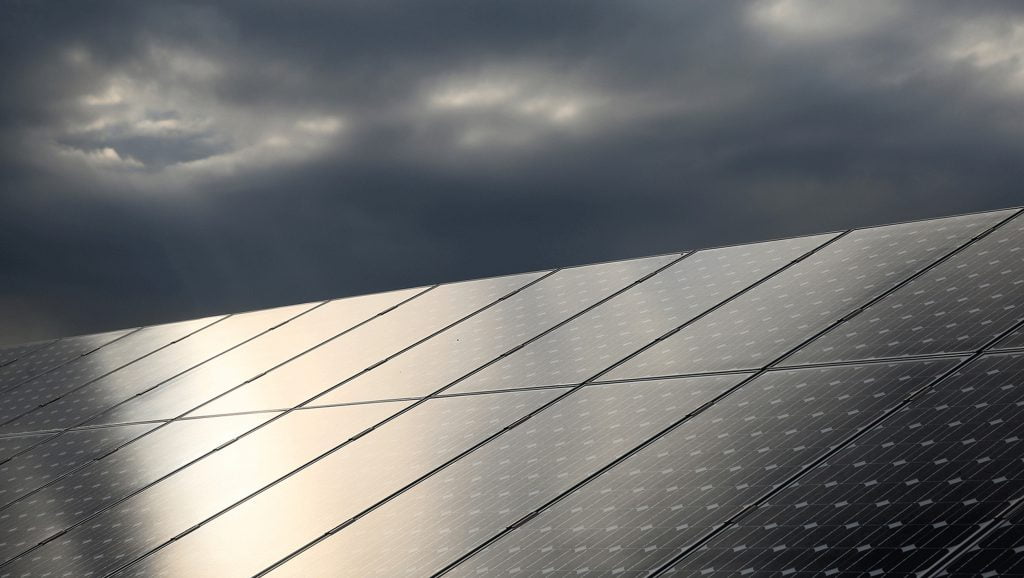
There is also a phenomenon called the cloud edge effect in the solar panel energy production process. A temporary increase in irradiance causes it. When the cloud begins covering the sun, a sudden energy burst happens due to the light reflection of the moving cloud. As a result, the edges boost the sunlight amount, and the DC voltage rises.
Thereby, even living in areas with fewer sunny days during the year, it is still worth investing in a solar system.
The maximum efficiency of the solar panel system on cloudy days is about 30%. When installing a solar panel system, it is crucial to consider the cloudy weather days at your location.
Will Solar Panels Work In The Rain And Snow?
Photovoltaic panels use direct or indirect sunlight to generate power. Anyway, direct sunlight is more profitable. In winter or on overcast days, the sunlight is less intense, and there are fewer sunlight hours each day. Your solar panel system will produce less energy because of the clouds’ shadow or the snow cover.
Surprisingly, the rain and the snow are beneficial for your solar panel system, safely washing away all the dust, dirt, and pollen on the panels. So, nature takes care of your solar system and cleans it. Although no further maintenance is needed after the snowfall, professional solar panel cleaning is essential. Thus, to ensure your solar system’s longevity, solar panel maintenance is required by the end of the winter close to the spring.
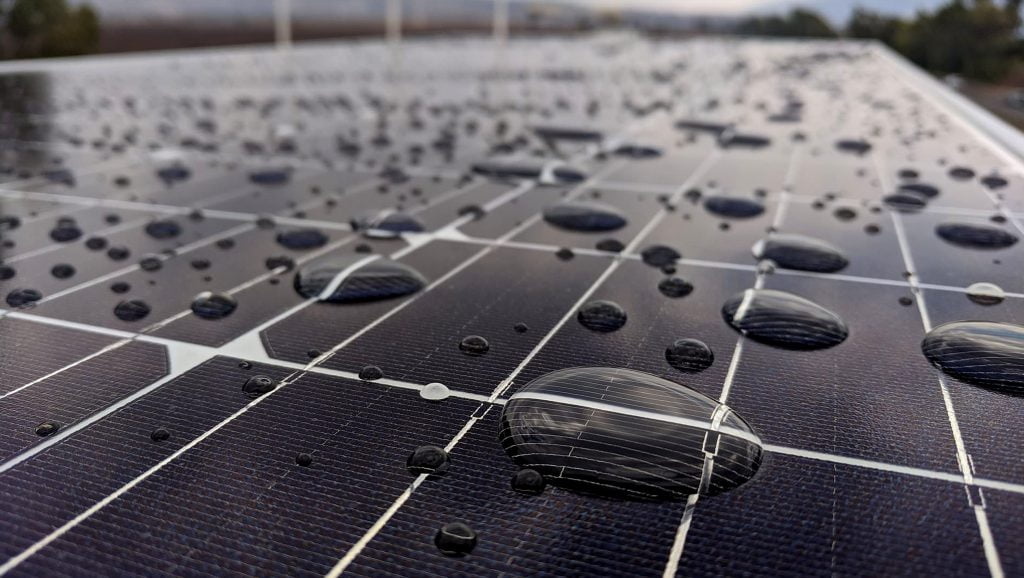
Besides, California’s federal solar panel tax credit is one of the most valuable financial incentives for the United States’ solar industry. You can always utilize the net metering policy and send the excess power produced by your panels during sunny hours back to the grid. The California solar panel market is a little bit complicated. So, to get the tax credit benefits, a professional tax consultation is required.
How Does Snow Affect The Solar Panels?
Even though a little snow is essential for your solar panels to keep them clean, the snow does not significantly affect energy production. The sunlight can still pass through the snow coat. Moreover, the panels are usually installed at an angle. So, the snow will easily fall off the panels. Besides, panels produce heat and, soon, they will melt off the snow on them.
Plus, in a snowstorm, your energy production can increase because of the snow reflecting the sun.
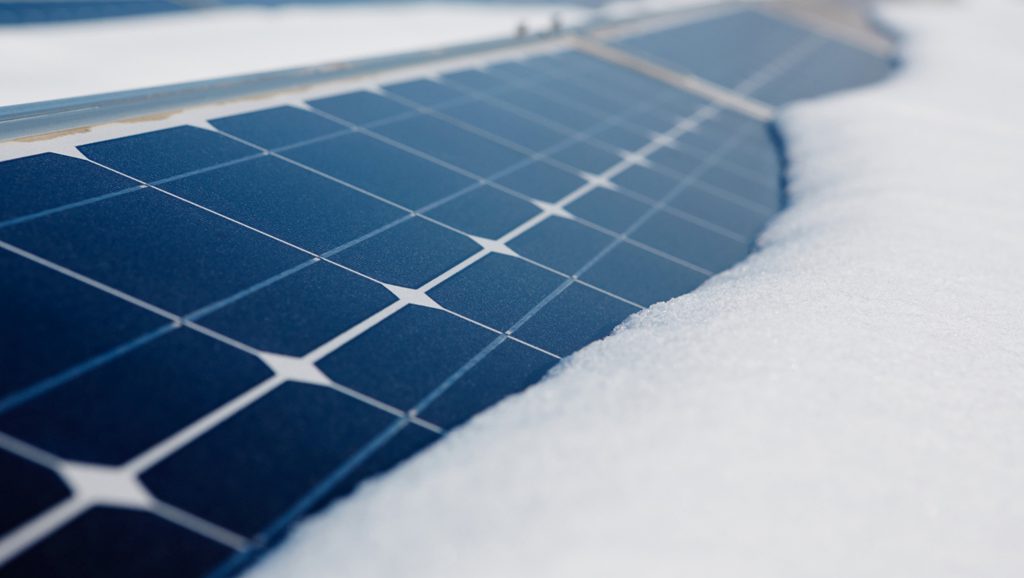
How To Protect Solar Panels From Weather Conditions?
Solar panels are durable. They will help you reduce your energy bills and save money. Solar energy usage will also decrease fossil fuel usage and preserve the environment.
Solar panels require regular maintenance to work efficiently. However, weather conditions impact solar panels.
As PV systems are installed outside, on the ground of the yard, or on top of the roof, falling debris or trees can damage them. Weather events like thunderstorms and hurricanes will also affect their productivity.
To protect your solar panels from strikes, you can install lightning rods on your building. It is also necessary to make proper grounding preventing electrical injuries. Otherwise, the lighting can roughly harm your solar system and even cause a fire because of high voltages.
Another essential step preventing solar panel system damages is using secure anchoring, which will keep your panels in place, preventing them from moving in storms.
Also, consider the weather conditions for solar panel maintenance. It is always better to clean the system in cloudy weather not to leave stains on solar panels.
What Is The Best Weather For Solar Panels?
The best weather for solar panels is the sun shining and a clear sky. Plus, the solar panel system works better in cooler temperatures. With temperature rise, the PV system becomes less productive. However, in late fall, winter and spring, there are shorter daylight hours. With less sunlight hitting the solar panels, the energy production efficiency is going to drop. Therefore, during the summer months, it is sunnier, and more electricity is produced.
Hence, there is no better time to install a solar panel system and switch to solar energy. There are advantages and disadvantages in all the seasons of the year, impacting solar energy production.
Professional solar panel companies will always find the best solution for your case. Best solar panel experts will calculate your home’s shading percentage and design the system that meets all your energy needs.
Author of a publication: Irene Abgaryan


